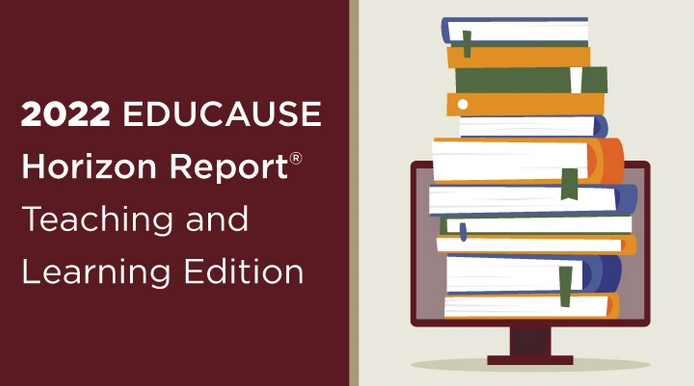
I am very happy that I can announce that the „2022 EDUCAUSE Horizon Report | Teaching and Learning Edition“ got finally published:
I am thrilled to share the 2022 EDUCAUSE Horizon Report | Teaching and Learning Edition with you. I contributed to it this year as one of over 55 expert panelists from across the globe. This report profiles important trends and key technologies and practices shaping the future of teaching and learning, and envisions a number of scenarios and implications for that future. I hope you will join me and spread the word by encouraging your professional colleagues and friends to check out this year’s edition. You’ll find this report included as part of EDUCAUSE’s Showcase Series that spotlights the most urgent issues facing higher education.
And I am sure you are curious about the key trends for 2022:

Find here the [full report].

